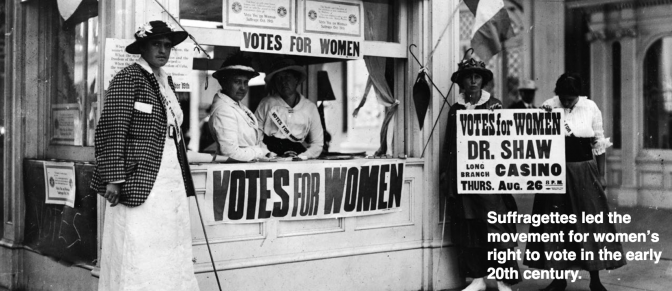The Significance of the Women’s Vote in 2016

The next president of the United States faces the responsibility of nominating a Supreme Court justice to replace the late Antonin Scalia, and the possibility of nominating three more. For women, in particular, a Republican president could mean changes to reproductive rights, with newly inducted Supreme Court justices who could overturn Roe v. Wade.
The next president will also nominate federal judges to fill important vacancies in district courts and the U.S. Court of Appeals. Consider Aaron Persky, the California Superior Court judge whose lenience allowed sexual predator Brock Turner to spend only three months of a six-month sentence behind bars.
Consider also the recent decision by an Alabama appeals court that permits employers to not hire people who wear their hair in dreadlocks. Or North Carolina’s bathroom law, which forces trans-gender people to use public restrooms that match the sex on their birth certificate, and forbids cities from passing anti-discrimination ordinances to protect LGBTQ people from discrimination. Our elected officials appointed the judges who presided over each of these cases.
The presidential candidates are just one piece of a very big puzzle this election season. On Nov. 8, voters across the country will see diverse ballot measures regarding marijuana legalization, education, wages, gun control, land conservation and more. Local races and ballot questions are arguably the most important items; the choices we make in the voting booth, particularly at the local and state levels, set the stage for how our children are schooled, our communities are organized, our roads are maintained and our elderly are cared for.
While only 43% of women showed up to vote in the 2014 election, there were still more female than male voters (40.8%). Politicians and lobbyists know that women—and mothers, in particular—have the power to decide elections. The more women who vote, the more elected officials will address our wants and needs, preserve our rights and help drive social progress. And when we vote regularly, we keep our elected officials accountable.
Women didn’t have the right to vote until 1920. Susan B. Anthony and Elizabeth Cady Stanton changed that. Our continued participation in the electoral process ensures that women’s interests are addressed.
If you enjoyed this Freedom Leaf article, subscribe to the magazine today!

